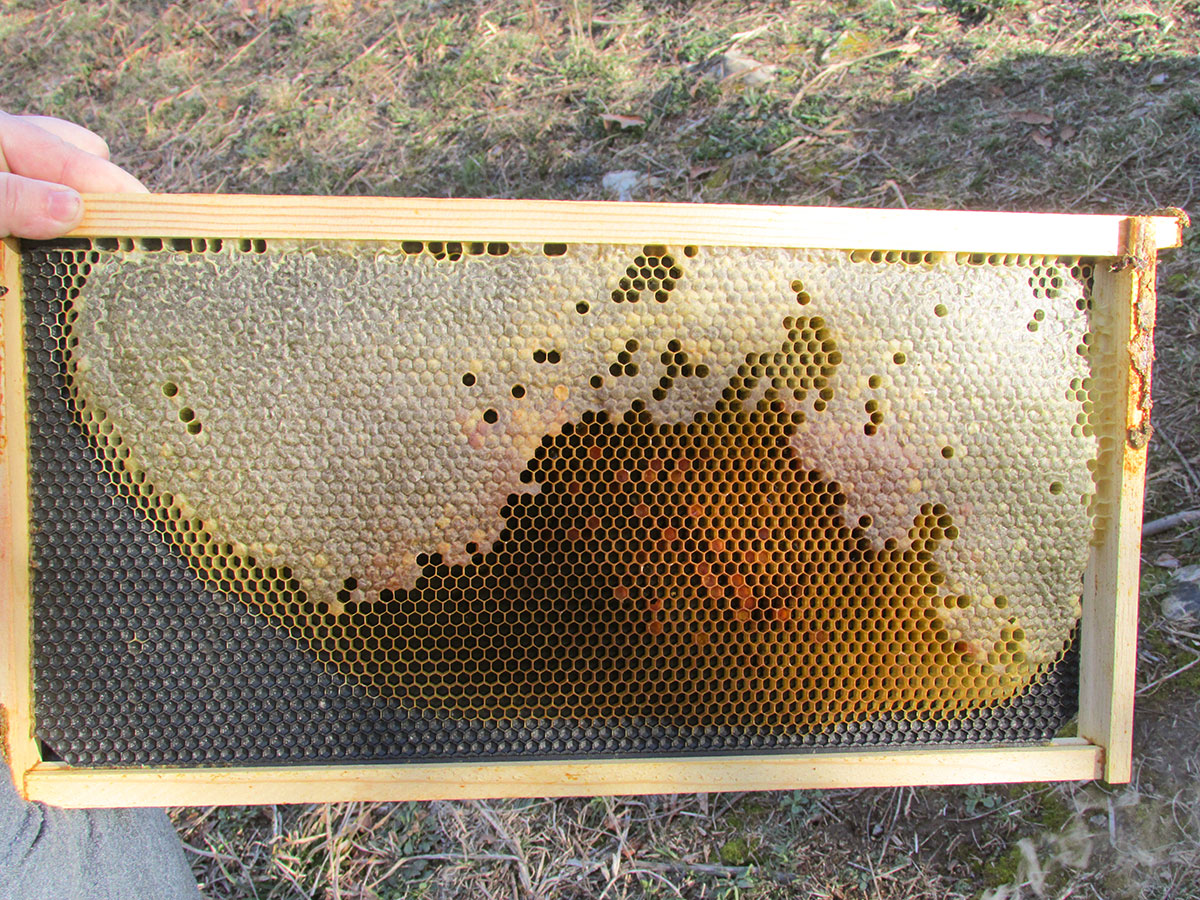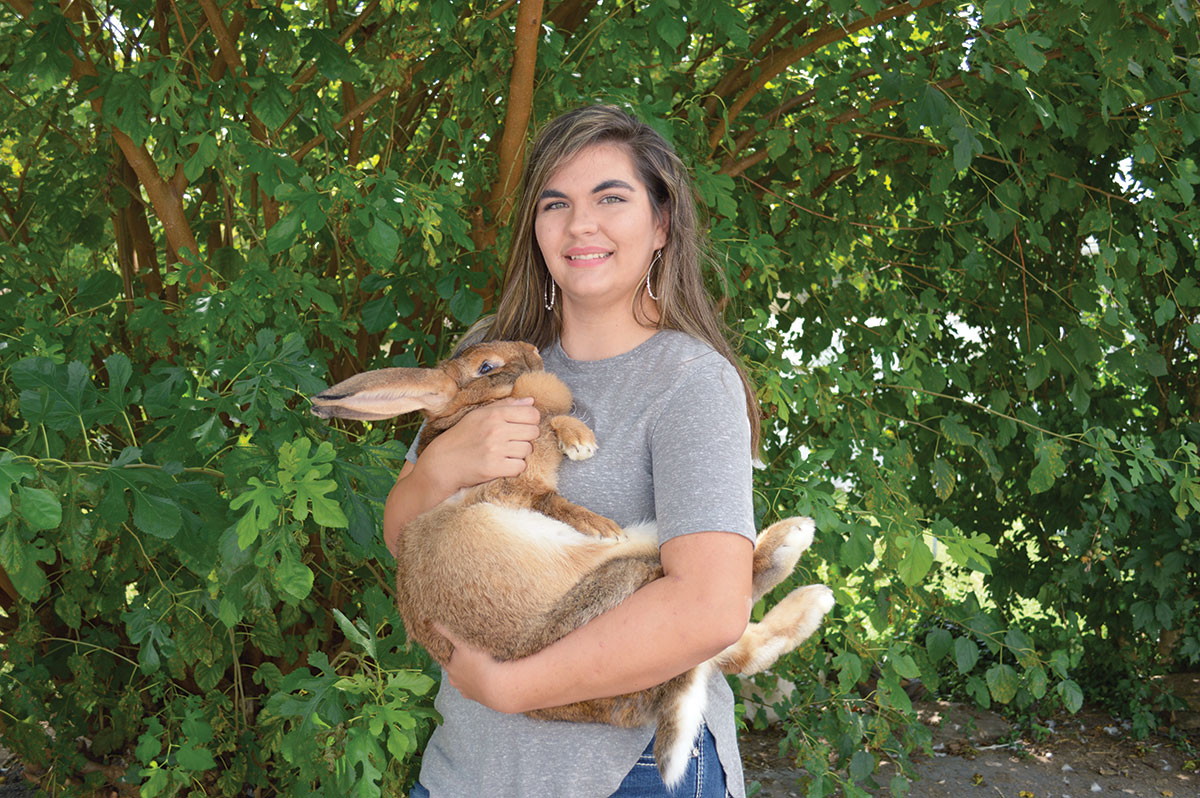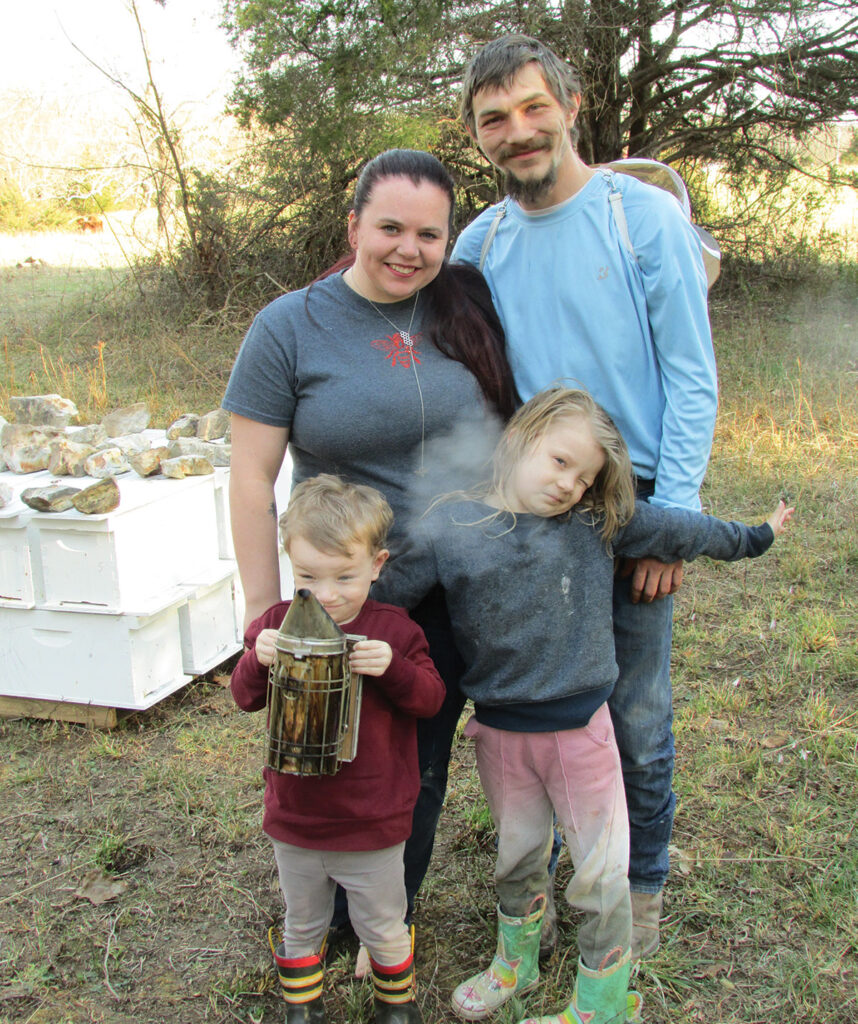
Jasper County, Mo., couple turns a hobby into growing pollinator business
CASSVILLE, MO. – Anna Buckley-Schoelzel, of rural Cassville, Mo., has been fascinated by bees since she was a young girl living in Florida, where her dad had a friend who was a bee-keeper.
Her husband, Cory Schoelzel, a long-time entomology “nerd,” is also mesmerized by the fuzzy creatures.
Together, they are establishing themselves as a source for bees for residents of Southwest Missouri.
After taking an online course through Penn State University, Anna began her bee-keeping endeavors three years ago with a single hive gifted to her from a long-time friend and two packages of bees ordered from Georgia.
“They were basically just swarms in a box,” Anna said.
Called Buckley’s Bees LLC, the business has since expanded to include some 100 hives with differing bee breeds and population counts. The hives are situated on the couple’s 4-acre mini-farm, where Anna has planted native flowers and fruit trees to provide food for her apian friends.
Some of the Schoelzels’ hives are the result of swarm calls she and Cory respond to, primarily during the spring when bees began scouting for new homes. With swarm season again upon us, Anna encourages residents to call a local bee-keeper to relocate the bees if they happen upon a swarm.
“A wild swarm only has a 30 percent chance of surviving our winters,” Anna explained, “But with the help of a beekeeper, their odds rise to 90 percent.”
“Whatever you do, though, don’t kill the bees,” she said
Anna the first thing she does on a swarm call is look for the queen.
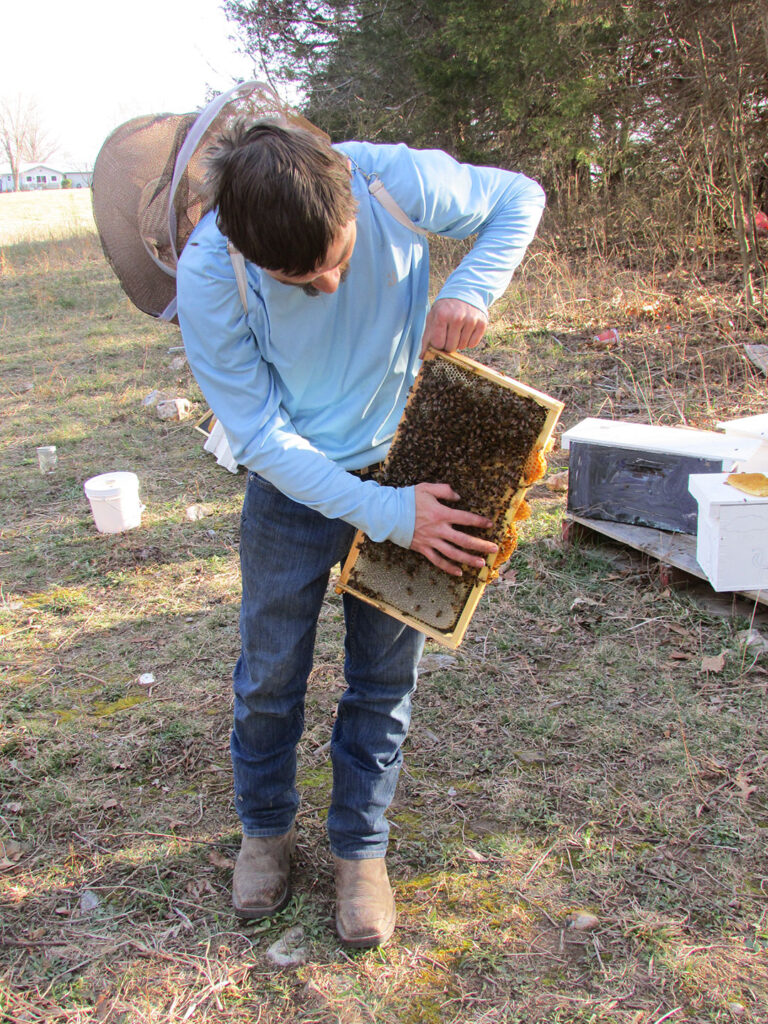
“If I can locate her, I put her in a box with a few of the surrounding bees, then leave the box open for a while and wait,” she explained. “Usually, the majority of the bees will follow the queen into the hive. After a while, I close the box, transport it back to my place and use the bees to start a new hive.”
In addition to nurturing her own hives, Anna has a passion for educating people about the importance of bees in the ecosystem.
“Honeybees are responsible for the pollination of 80 percent of crops grown in the United States,” she said. “People want to start their own bee hives for a number of reasons. Some want them for the honey, and some to pollinate their gardens and fruit trees.”
Anna said honey bees also help out the ecosystem by providing a food source for birds and other insects.
One of Cory’s favorite hobbies is to watch a spider take up residence below a hive.
“He’ll eat a bee every couple of hours,” Cory said, “He will police the hive by keeping pests and parasites at bay.”
Because of the growth of their bee colonies, this is the first year the Schoelzels are advertising nucleus hives (NUCs) for sale to prospective bee keepers. The NUCs (starter hives) consist of five frames, half of a standard ten-frame colony.
“They contain drawn-out comb filled with eggs, soon-to-emerge baby bees, food, a new queen, and three to five pounds of worker bees,” Anna said.
The NUCs are spoken for by eager buyers almost as quickly as they’re advertised.
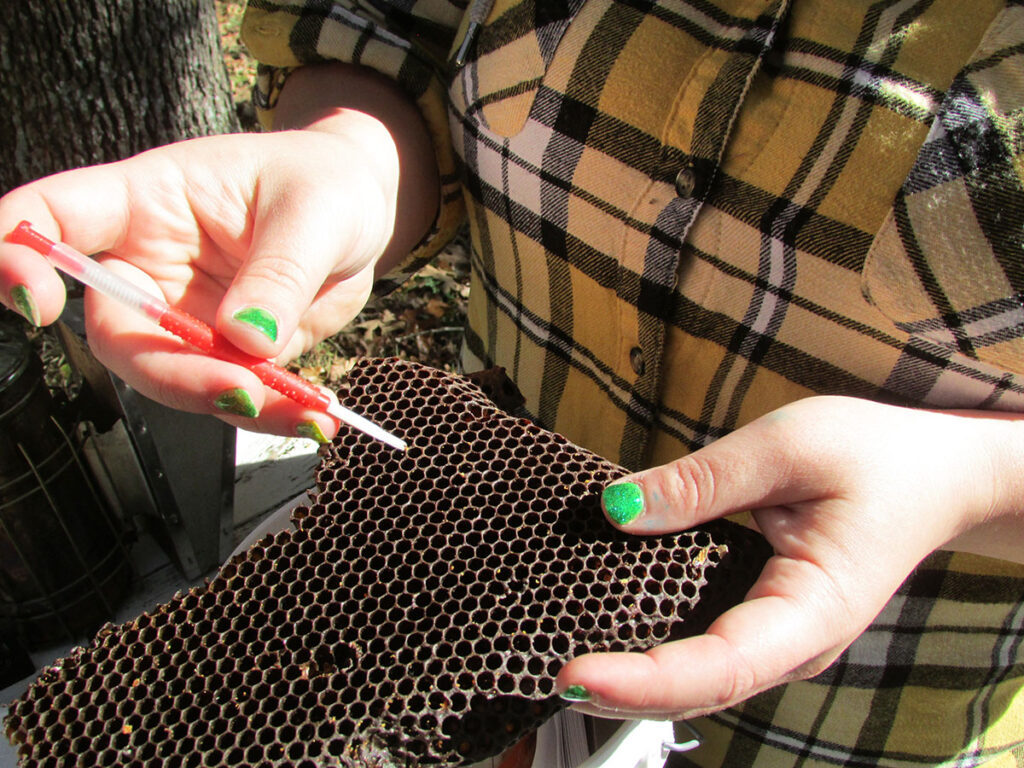
Grafting larvae from existing honeycombs is a technique Anna uses to grow fresh queen bees for the NUCs she sells. She keeps some of the queens to expand her own hive-count; others she sells to bee-keepers who need additional queens for their own hives.
“This year, we plan to make at least 40 queens every week throughout spring to grow new colonies” Anna said.
Anna is eager to share what she has learned about bees with others.
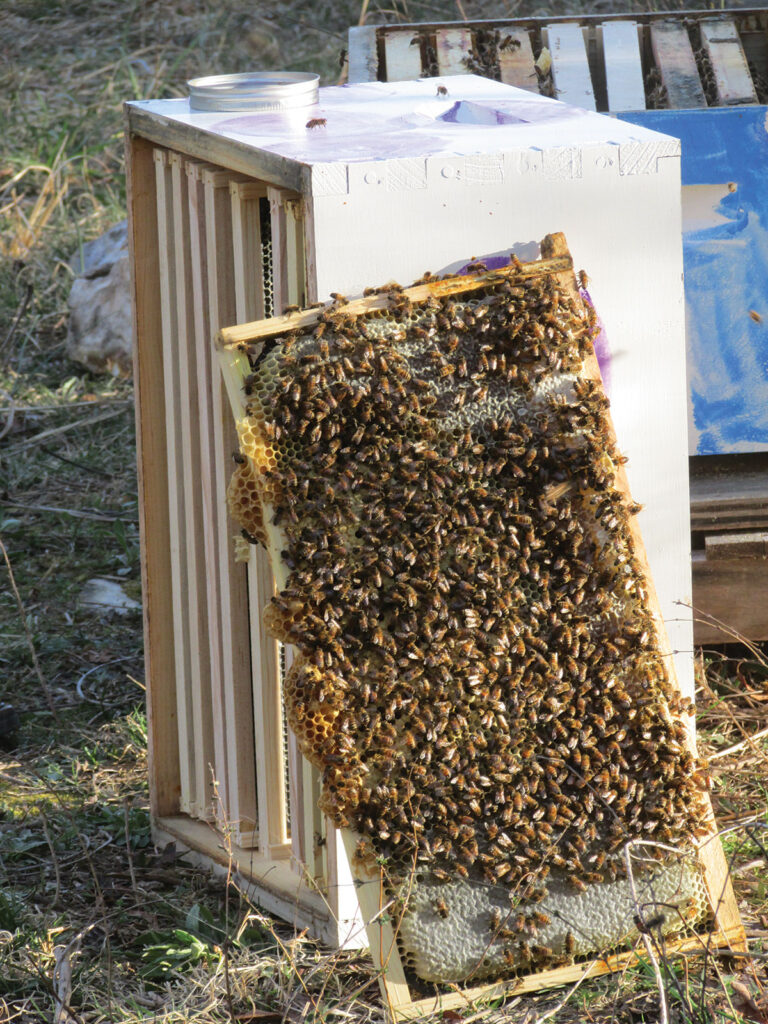
“I hope to begin speaking this year to area students and other interested groups about the importance of bees in the biosphere,” she said.
Although the Schoelzels’ apiary is proving to be successful, Anna says it hasn’t been without challenges.
“Bees are subject to diseases and bacterial infections and can be the victims of other insects and animal predators, like opossums and skunks,” she said.
Winter, too, provides an opportunity for loss.
“Most hives do fine in the cold weather as long as they have plenty of food,” Anna said, although she admits she’s lost a few hives to cold temperatures.
The Schoelzels typically feed plenty of honey back into the hives to sustain their bees through the winter.
“This will be the first year we’ll have honey to sell,” Cory said.
Anna says her favorite part of bee-keeping is watching their growth cycles.
“It’s so amazing to me how such a tiny little insect can have such a big impact on our world,” she said.

